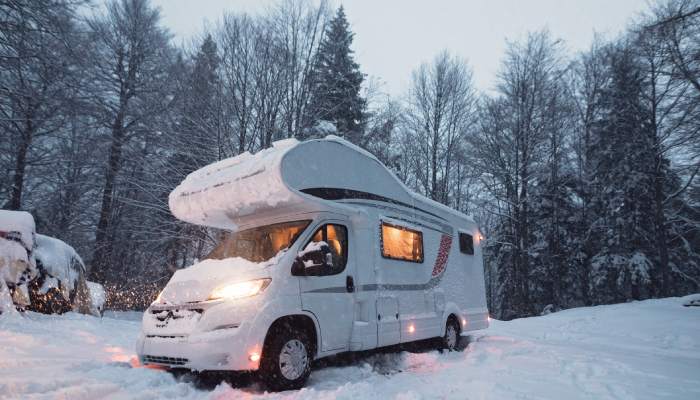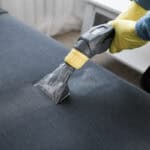While the temperatures will start dipping soon, cold-weather camping doesn’t have to mean sacrificing comfort. Many RV enthusiasts think winter travel requires expensive gear or complex modifications, but smart preparation makes all the difference. With the right winterization strategy, your RV becomes a warm sanctuary that rivals any luxury hotel room.
Insulation Strategies That Actually Work
Proper insulation transforms your RV from a cold metal box into a cozy retreat. Start with your windows, which lose more heat than any other surface. Reflective insulation creates an effective barrier when cut to fit each window precisely.
Floor insulation deserves equal attention since cold air naturally settles downward. Thick area rugs provide immediate warmth underfoot while also adding an extra insulation layer. Consider foam board insulation underneath your RV if you plan frequent winter trips.
Heating Solutions for Maximum Comfort
Your RV’s furnace works harder during winter months, making efficiency crucial for both comfort and propane conservation. The role of thermostats in RV furnaces becomes especially important during cold weather, as proper temperature regulation prevents overworking your heating system while maintaining consistent warmth.
Space heaters provide supplemental heat for specific areas, ceramic heaters offer excellent efficiency and safety features, and oil-filled radiators provide steady, quiet warmth. Always ensure adequate electrical capacity before adding supplemental heating.
Preventing Frozen Pipes and Water Damage
Water system protection requires proactive measures before temperatures drop. Pipe insulation prevents freezing in exposed areas, particularly under your RV, where wind chill intensifies cold effects.
Tank heaters maintain water temperature in holding tanks, preventing costly damage from frozen and burst tanks. Install these before your first winter trip rather than waiting for problems to occur.
Power and Propane Considerations
Cold weather increases both electrical and propane consumption significantly. Also, monitor your battery levels more frequently since cold temperatures reduce battery capacity and efficiency.
Propane usage can double or triple during winter camping. Carry extra tanks and know the locations of propane refill stations along your route. Consider switching to larger capacity tanks if you frequently camp in cold conditions.
Ready for Your Winter Adventure
Winter RV travel rewards adventurers with unforgettable experiences and stunning scenery. These winterization strategies ensure your comfort while protecting your investment from cold-weather damage. Start implementing these preparations before your next cold-weather trip, and you’ll wonder why you ever avoided winter camping.







